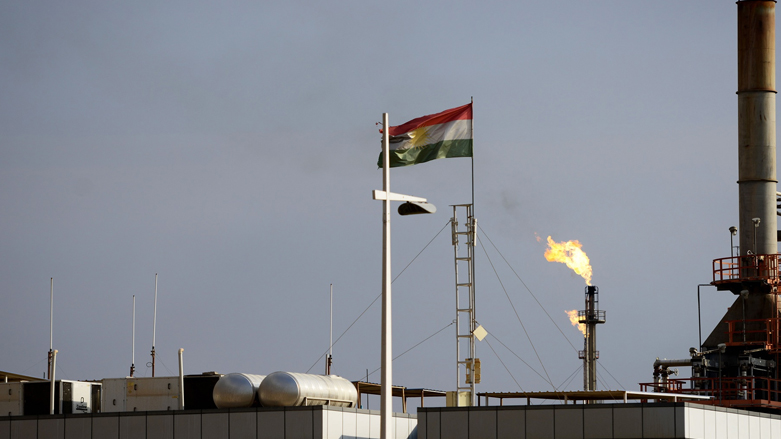Audit shows Baghdad greatly exaggerated Kurdistan oil revenues

ERBIL, Kurdistan Region (Kurdistan 24) – An audit of the Kurdistan Region’s oil exports released this week revealed that oil revenues alone are not sufficient to cover the basic expenses of the Kurdistan Regional Government (KRG.)
As previously promised by the KRG, the Oil and Gas sector of the Kurdistan Region was reviewed by international auditing company Deloitte, which released its findings on Tuesday.
"According to the validated numbers, the total revenue generated from oil sales is 3,328,211,119 US dollars, after deducting expenses," for the period from January 1, 2017, to June 30, 2017, the report stated.
The audit has appeared just before the Iraqi Parliament is set to vote on the federal budget bill, which slashes the Kurdistan Region’s share from 17 percent to 12.6 percent, a serious point of tension between the KRG and the central government.
The move is seen as part of a series of ongoing collective punitive measures leveled by Baghdad against the Kurdistan Region in retaliation for the Sep. 25 referendum on independence, which saw an overwhelming majority vote in favor of secession from Iraq.
Since the historic vote, the central government has demanded that the KRG hand over control of the Region’s airports, international border crossings, and oil fields to Baghdad, and it has actually closed the Region’s airports to international flights.
Iraqi Prime Minister Haider al-Abadi this month affirmed there would be no changes to the budget that he has proposed. He even went so far as to claim that the KRG had earned roughly $1.6 billion USD in oil sales over the last three months of 2017, seeming to suggest that current oil exports would compensate for the upcoming budget cut.
However, for the first six months of 2017, January to June inclusively, oil sales by the KRG totaled $3 billion. This amount included the Kirkuk oil field exports, which Iraqi forces and Iranian-backed Shia militias attacked and seized in mid-October.
After the Oct. 16 attack, the KRG lost half of its oil revenues, according to the Kurdistan Region’s Prime Minister, Nechirvan Barzani. The Kurdish government largely depends on oil revenue—which makes up over 90 percent of the Kurdistan Region’s income—to cover basic expenditures, including government employees’ salary, and public services.
Indeed, Kurdish officials – supported by the International Monetary Fund (IMF) – have repeatedly stated that the 2018 Iraqi budget share proposal is insufficient to cover the needs of the KRG.
“In our opinion, these transfers should be increased to about 10 trillion Iraqi dinars ($8.43 billion)," IMF Deputy Division Chief Christian Josz said earlier this month.
The Iraqi federal government proposes to allocate some $5.5 billion to the Kurdistan Region, which would – estimating from the figures released by Deloitte – cover less than what the KRG would have generated from its oil revenues, including the Kirkuk oil fields. Under the proposed plan, $5.5 billion merely covers the salaries of public servants.
The KRG has been managing a financial crisis, compounded by the sharp drop in oil prices and the influx of over 2 million refugees and Internally Displaced Persons (IDP) from Iraq and Syria since the rise of the Islamic State (IS) in 2014. That same year, the Iraqi federal government stopped its payments to the KRG.
“The decision of the Regional Council for the Oil & Gas Affairs to commission Deloitte to review the Region’s Oil & Gas sector and to disclose its findings, therefore, stems from the [Kurdish] Government’s commitment to transparency, its desire to reinforce public trust in the sector, and its efforts to reform and optimize its public finances,” the report explained.
In other words, the KRG is hoping to show the international community that Baghdad is not willing to work in good faith with Erbil, confirming Kurdish officials’ common mantra that “Kurds are second-class citizens in Iraq.”
Editing by Laurie Mylroie

.jpg)